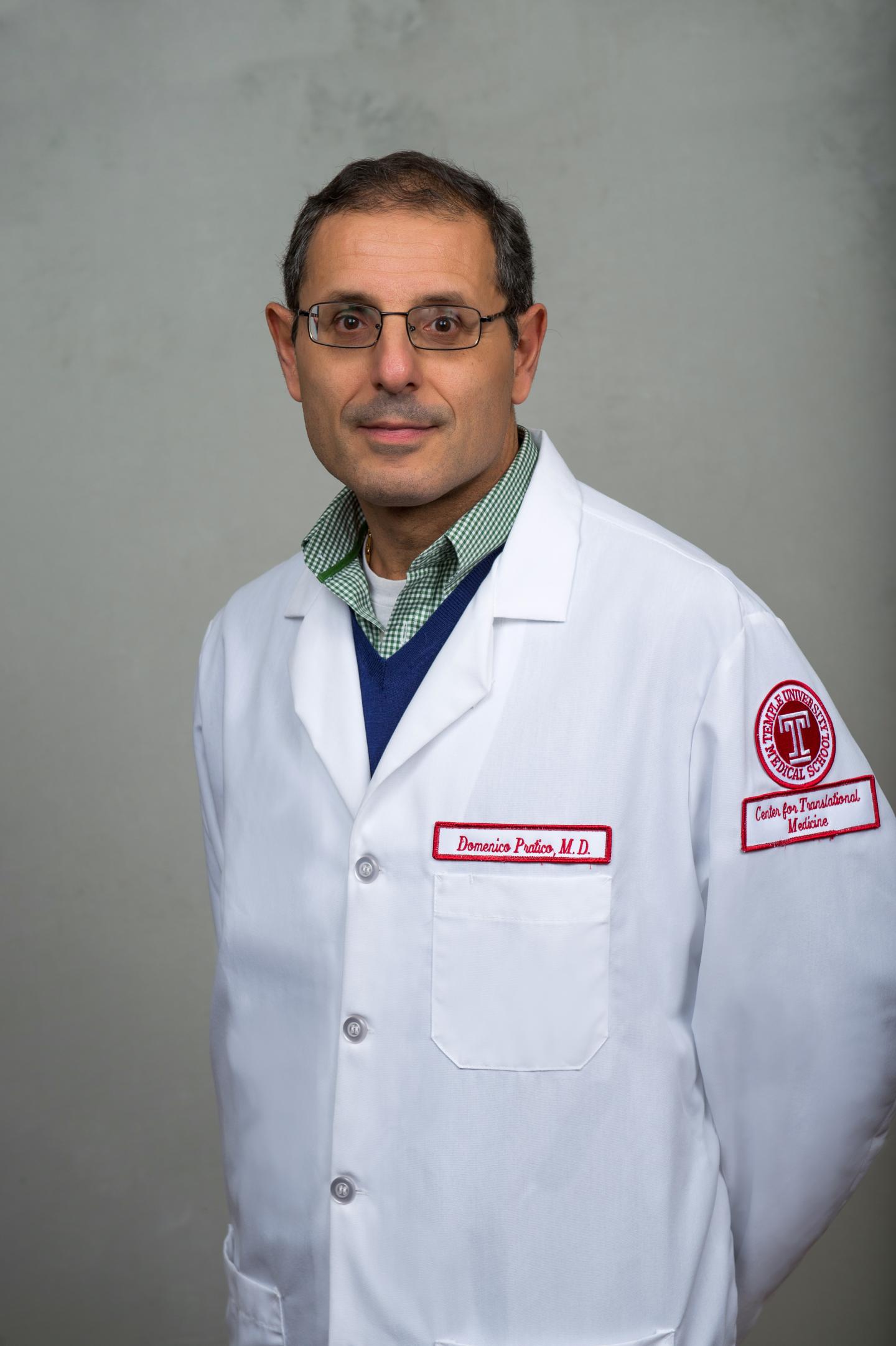
Credit: Lewis Katz School of Medicine at Temple University
(Philadelphia, PA) – Beneath the amyloid plaques and neurofibrillary tangles that are the hallmark pathological features of Alzheimer’s disease, is another, lesser-known anomaly: the almost complete absence of adult neurogenesis, the process by which new neurons form in the developed brain. Thought to serve a critical role in maintaining memory and learning ability, little is actually known about the significance of reduced adult neurogenesis in Alzheimer’s disease. Now, scientists at the Lewis Katz School of Medicine at Temple University have a chance to find out, thanks to a $100,000 gift from Stop Alzheimer’s Now, a non-profit organization dedicated to eradicating Alzheimer’s disease.
Domenico Praticò, MD, Scott Richards North Star Charitable Foundation Chair for Alzheimer’s Research, Professor in the Departments of Pharmacology and Microbiology and Director of the Alzheimer’s Center at the Katz School of Medicine will be leading the study supported by the Stop Alzheimer’s Now donation.
The new study will test whether inhibition of a specific protein in the brain can stimulate neurogenesis. Dr. Praticò and colleagues previously found that the targeted protein functions as a controller of neurogenesis and demonstrated in vitro that its inhibition triggers the growth of new neurons.
Reinvigorating the endogenous process of adult neurogenesis differs from current trends in the development of stem cell therapies for Alzheimer’s disease, which rely on the administration of stem cells. “The research project is high-risk, high-reward,” Dr. Praticò said. “Our work may not yield a significant result, but if we show that natural adult neurogenesis can be restored, it could lead to big breakthroughs in our understanding of neurogenesis, in addition to the generation of novel therapies for Alzheimer’s disease.”
“The reason I chose Temple [to receive funding] was simple,” said Shaun McDuffee, founder of Stop Alzheimer’s Now. “It was Dr. Praticò and his team. Their dedication, passion, and commitment to wiping out this disease are second to none. I truly believe they will find a cure.”
Stop Alzheimer’s Now (SAN), founded by McDuffee in 2013, has committed to walking across all 50 states to raise awareness and funds for research for a cure. To date, SAN has walked nearly 900 miles and raised over $360,000 through individual contributions and partnerships with organizations such as the Scott Richards North
Star Charitable Foundation and the McDuffee Family Foundation.
“We are very excited and grateful that Stop Alzheimer’s Now has chosen to support our research,” Dr. Praticò added.
###
About Temple Health
Temple University Health System (TUHS) is a $2.1 billion academic health system dedicated to providing access to quality patient care and supporting excellence in medical education and research. The Health System consists of Temple University Hospital (TUH), ranked among the “Best Hospitals” in the region by U.S. News & World Report; TUH-Episcopal Campus; TUH-Northeastern Campus; Fox Chase Cancer Center, an NCI-designated comprehensive cancer center; Jeanes Hospital, a community-based hospital offering medical, surgical and emergency services; Temple Transport Team, a ground and air-ambulance company; and Temple Physicians, Inc., a network of community-based specialty and primary-care physician practices. TUHS is affiliated with the Lewis Katz School of Medicine at Temple University, and Temple University Physicians, which is Temple Health’s physician practice plan comprised of more than 500 full-time and part-time academic physicians in 20 clinical departments.
The Lewis Katz School of Medicine (LKSOM), established in 1901, is one of the nation’s leading medical schools. Each year, the School of Medicine educates more than 800 medical students and approximately 240 graduate students. Based on its level of funding from the National Institutes of Health, the Katz School of Medicine is the second-highest ranked medical school in Philadelphia and the third-highest in the Commonwealth of Pennsylvania. According to U.S. News & World Report, LKSOM is among the top 10 most applied-to medical schools in the nation.
Temple Health refers to the health, education and research activities carried out by the affiliates of Temple University Health System (TUHS) and by the Katz School of Medicine. TUHS neither provides nor controls the provision of health care. All health care is provided by its member organizations or independent health care providers affiliated with TUHS member organizations. Each TUHS member organization is owned and operated pursuant to its governing documents.
Media Contact
Jeremy Walter
[email protected]
267-838-0398
Original Source
https:/




